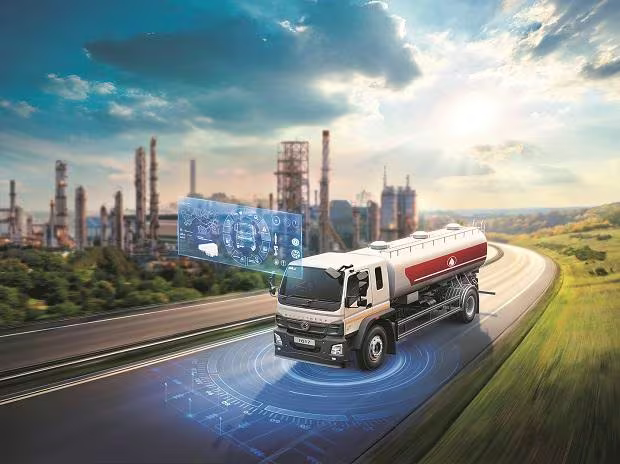Innovating Fuel Logistics: Reshaping Delivery Dynamics

The quest for enhanced efficiency has led propane industry leaders to explore the transformative capabilities of artificial intelligence (AI). Driven by the need for streamlined workflows, improved supply chain management, and digital transformation, energy companies are now delving into the realm of generative AI – a cutting-edge technology that holds the potential to reshape both back-office functions and on-road operations.
Understanding the Dynamics of Artificial Intelligence
Artificial intelligence is a broad term encompassing computer systems capable of performing tasks that traditionally required human intervention. In the business context, AI can be categorized into two main types: predictive and generative AI.
Predictive AI: Predictive AI, a longstanding presence, analyzes existing data and patterns to forecast future outcomes.
Generative AI: The groundbreaking shift comes with the emergence of generative AI – a type of artificial intelligence that goes beyond pattern analysis. It creates content based on prompts provided by humans, showcasing the ability to generate unique ideas.
The Impact of Generative AI in Business Operations
Generative AI is making waves in the business world, particularly in revolutionizing tasks like drafting emails and data analysis. Unlike its predictive counterpart, generative AI has the potential to automate work activities that currently consume a significant portion of employees’ time.
Contrary to concerns about job displacement, incorporating AI into fuel delivery operations is not about cutting jobs; it’s about empowering humans to perform their jobs more efficiently, reducing stress, and increasing productivity.
Unlocking the Potential: AI Implementation in Fuel Delivery
Fuel delivery companies are already capitalizing on AI technologies to enhance various aspects of their operations. Here are three ways in which AI tools can be implemented within this industry:
1. Enhanced Customer Operations:
AI assists in responding to customer queries, especially emotionally charged ones. By using AI to draft responses, fuel dealers can save time and provide faster, more personalized replies to customers, crucial for addressing dissatisfaction.
2. Optimized Sales and Marketing Efforts:
Generating content for campaigns becomes more efficient with AI. It can create campaign ideas and write content based on target audience and specific offers, allowing fuel dealers to focus on personalized customer interactions.
3. Efficient Employee Training:
AI’s applications go beyond written copy, extending to multimedia content creation like videos and images. Fuel dealers can leverage AI to quickly produce training videos, optimizing the onboarding process for new drivers.
The Future Potential of AI in Fuel Delivery
Looking ahead, AI holds immense promise for fuel delivery companies:
1. Streamlined Demand Forecasting:
AI can streamline the process of forecasting fuel and HVAC demand, providing immediate feedback based on historical data.
2. Efficient Process Optimization:
AI’s real-time analysis of data can optimize delivery routes, saving time and resources. Beyond deliveries, AI can also optimize HVAC system settings based on various factors.
3. Advanced Financial Operations:
AI offers valuable support to accountants and financial professionals by generating unique reports and risk assessments, aiding in creating comprehensive annual budgets.
The Synergy of Artificial and Human Intelligence
Contrary to historical fears of technology displacing jobs, AI has consistently contributed to job creation through technological innovations. In the case of AI in fuel delivery, the focus is on enhancing efficiency and effectiveness rather than job replacement.
As AI continues to evolve, companies need to invest in AI-savvy users who can leverage these tools effectively. While AI works tirelessly 24/7, it remains a tool that requires human input, emphasizing the symbiotic relationship between artificial and human intelligence.
Harnessing AI in Fuel Delivery Software
The current and future applications of AI in fuel delivery come in two forms: standalone systems and embedded tools within existing operational software. Accessing these AI tools often relies on cloud-based software environments, offering flexibility and accessibility from any device with an internet connection.
To unlock the full potential of AI for boosting productivity in fuel delivery operations, being on a cloud-based software platform is necessary. The integration of AI tools into existing operational software provides a seamless and efficient pathway to navigate the future of fuel delivery.










